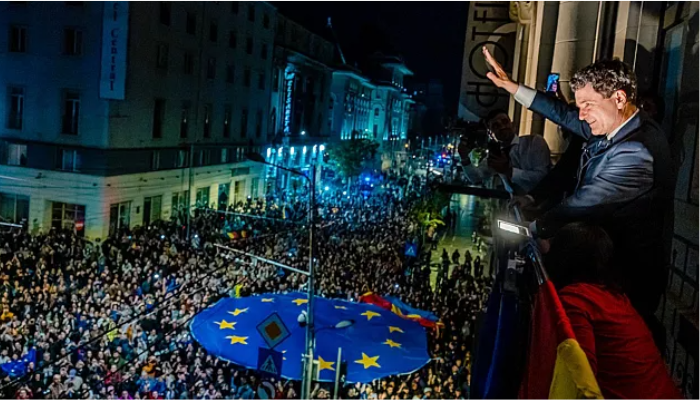In a historic and highly polarised presidential runoff, Nicușor Dan, Romania’s pro-Western independent candidate, secured a dramatic victory, clinching 54% of the vote. His opponent, hard-right nationalist George Simion, who garnered 46% of the vote, initially refused to concede, leading to a tense standoff before finally acknowledging Dan’s win later that night.
A Landmark Victory Amidst Deep Divisions
This election, seen as a pivotal moment in Romania’s post-communist history, saw Romanians face a clear choice between continuing their pro-Western trajectory or embracing a more nationalist stance. Dan, who had served as the mayor of Bucharest, campaigned on a platform of anti-corruption and reform, promising to bring transparency and integrity to Romania’s political system. His victory is significant not just for Romania, but for the broader European Union, as it strengthens ties with the West and bolsters the EU’s stability.
As Dan celebrated with his supporters in Bucharest, he emphasized the need for national reconciliation, urging both the Romanian people and political parties to unite for the country’s future. His call for fresh faces in politics and the involvement of civil society was met with enthusiastic support.
International Reactions and Romania’s Political Future
World leaders, including Ukrainian President Volodymyr Zelenskyy, French President Emmanuel Macron, and European Union officials, expressed their congratulations to Dan, acknowledging the importance of his victory for regional stability. Zelenskyy, in particular, highlighted the importance of continuing the strategic partnership between Romania and Ukraine amidst ongoing tensions with Russia.
However, Simion’s refusal to concede in the early hours of the election sparked tensions, with the hard-right candidate declaring himself the victor prematurely. Despite this, the election results ultimately reflected the will of the people, with over 11 million Romanians casting their votes, marking a record turnout and signaling a collective desire to move beyond the political turmoil of recent months.
The Road Ahead for Romania
Nicușor Dan now faces the monumental task of healing the deep divisions within Romanian society, especially given the narrow margin of his victory. With the country grappling with economic challenges, Dan’s leadership will be crucial in ensuring that Romania remains firmly committed to its pro-Western path while addressing the internal issues that have sparked national discontent.
In the final hours of the election, Romanian officials also condemned foreign interference, particularly from Russia, with the government alleging that fake news campaigns on social media platforms like Telegram and TikTok aimed to destabilize the election process.
A Shifting Political Landscape
Romania’s political landscape has undergone a dramatic transformation with Dan’s win, signaling a shift towards greater transparency, democratic values, and European integration. The outcome of this election could also influence the broader geopolitics of Eastern Europe, particularly Romania’s role in NATO and its relations with neighboring countries like Moldova and Ukraine.
As Romania embarks on this new political chapter, Nicușor Dan’s victory represents a win for pro-Western, reform-driven politics at a time when Europe faces numerous challenges. With his focus on integrity, transparency, and national unity, Dan’s presidency may serve as a turning point in Romania’s post-communist journey.

